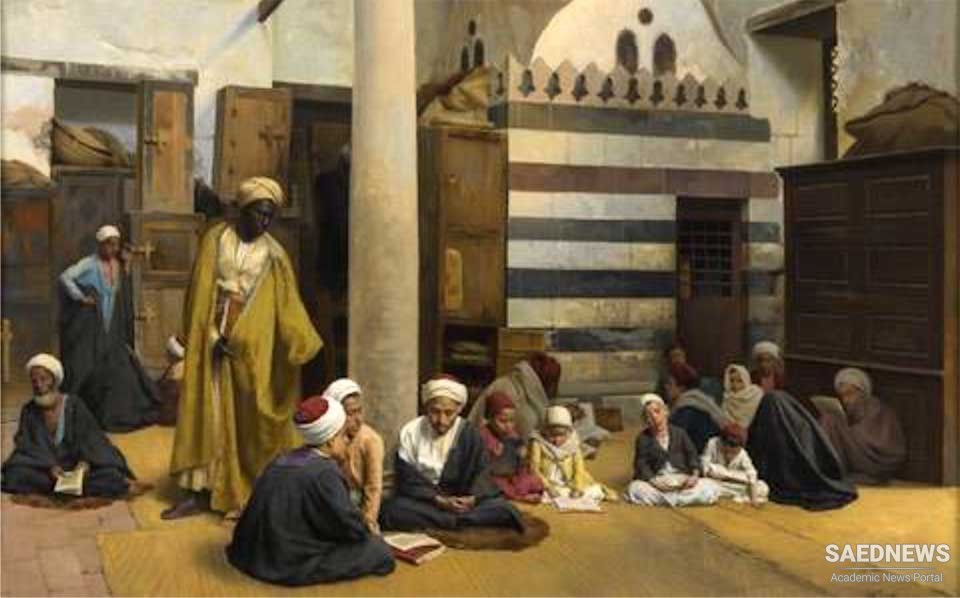However, the Shi’ites were continuously on the offensive, taking the initiative, while the other side played the defensive role. In the gradual growth of kalam, which reached its height in 2nd/8th and 3rd/9th centuries with the spread of the Mu’tazilite school, Shi’ite scholars and learned men, who were students of the school of the Household of the Prophet, became among the foremost masters of kalam.32 Furthermore, the chain of theologians of the Sunni world, whether it be the Ash’arites, Mu’tazilites or others, goes back to the first Imam of the Shi’ites, Ali.
As for philosophy, those who are acquainted with sayings and works of the companions of the Prophet (of which the names of 12,000 have been recorded and 120,000 are known to exist) know that there is little in them containing an appreciable discussion of philosophical questions. It is only Ali whose compelling metaphysical utterances contain the deepest philosophical thought.
The companions and the scholars who followed them, and in fact the Arabs of that day in general, were not acquainted with free intellectual discussion. There is no example of philosophical thought in the works of the scholars of the first two centuries. Only the profound sayings of the Shi’ite Imams, particularly the first and eighth, contain an inexhaustible treasury of philosophical meditations in their Islamic context. It is they who acquainted some of their students with this form of thought.
The Arabs were not familiar with philosophical thought until they saw examples of it during the 2nd/8th century in the translation of certain philosophical works into Arabic. Later, during the 3rd/9th century, numerous philosophical writings were translated into Arabic from Greek, Syriac, and other languages and through them the method of philosophical thought became known to the general public. Nevertheless, most jurists and theologians did not look upon philosophy and other intellectual sciences, which were newly arrived guests, with favor. At the beginning, because of the support of the governmental authorities for these sciences, their opposition did not have much effect. But conditions soon changed through strict orders many philosophical works were destroyed. The Epistles of the Brethren of Purity, which is the work of a group of unknown authors, is a reminder of those days and attests to the unfavorable conditions of that epoch.
After this period of difficulty, philosophy was revived at the beginning of the 4th/10th century by the famous philosopher Abu Nasr al-Farabi. In the 5th/11th century, as a result of the works of the celebrated philosopher Ibn Sina (Avicenna), Peripatetic philosophy reached its full development. In the 6th/12th century Shaykh al-Ishraq Shihab al-Din Suhrawardi systematized the philosophy of illumination (ishraq) and because of this was executed by the order of Salah al-Din Ayyubi. Thereafter, philosophy ceased to exist among the Muslim majority in the Sunni world. There was no further outstanding philosopher in that part of the Muslim world except in Andalusia at the edge of the Islamic world where at the end of the 6th/12th century Ibn Rushd (Averroes) sought to revive the study of philosophy.


 Philosophical and Theological Thought in Shia Islam
Philosophical and Theological Thought in Shia Islam














































